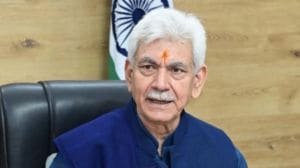Education budget 2017: Experts give mixed reaction
The Finance Minister also proposed Swayam, an online education platform, or Massive Open Online Course (MOOC) to help people build skills and gain employment. The reactions to this move have been largely positive, but some still remain uncertain.
Finance Minister Arun Jaitley on Wednesday announced the budget for the year 2017. Apart from bringing the National Testing Agency which will organise entrance examinations (like JEE, NEET and NET) under one roof, the Budget announced colleges will be given autonomous status based on accreditation and ranking.
Dr H Chaturvedi, BIMTECH said the Finance Minister has announced policies that were already known. “Keeping in mind the need of the education sector, all committees — right from the Kothari to the TS Subramanian — have recommended to allocate 10 per cent GNP to the education sector. But it seems the Finance Minister has not followed those recommendations in Budget 2017. Moreover, they have announced to give autonomy to the colleges on the basis of ranking which is unfair. The government has introduced nation ranking framework last year only. The autonomy should ideally be defined only on the basis of accreditation of the colleges, ” says he.
Watch what else is making news
“CBSE would now be relieved from the burden of conducting examinations and can henceforth focus on academics better,” says Beas Dev Ralhan, CEO and Co-founder, Next Education India Pvt Ltd, “Besides, this step would also free students from the burden of taking different entrance examinations.”
He recalls that the hurried implementation of National Eligibility cum Entrance Test (NEET) last year had left students confused over whether to follow the CBSE syllabus or not. Ralhan believes this would dispel all such confusions over syllabus in future.
The 2017 Budget also emphasised on science education in schools by bringing forth ICT-enabled education. Experts say this would boost the learning process in schools. “Not all of India’s millions are required to become engineers, doctors or college professors,” says Prateek Bhargava, CEO and Founder of Mindler. “When you’re looking at employment for a working population of 860 million by 2020, radical approaches are required.” There is a significant gap in the delivery of education, infrastructure, technology and latest methods of learning.
“Till these issues are addressed measuring learning outcomes will not be effective,” Bhargava says.
Also read | Union Budget 2017: New AIIMS institutes to giving autonomy to colleges, key takeaways for education sector
Vidhu Goyal, Founder of WONK, a tutor booking app, says that ICT enabled transformation in schools is the “need of the hour” This, however, will face many a hurdle due to lack of technology, and not up-to-mark infrastructure. She adds that greater autonomy to higher education institutions may solve such issues.
The Finance Minister also proposed Swayam, an online education platform, or Massive Open Online Course (MOOC) to help people build skills and gain employment. The reactions to this move have been largely positive, but some still remain uncertain.
“The government is a little late as there are many platforms that have already established themselves in this space,” says Shobhit Bhatnagar, CEO & Co-Founder, Gradeup, “MOOC completion rates are anyways quite low.”
With the 100 international skill development centres and 350 online courses that will come up, according to the budget, experts believe that the youth would be energised. The experts also welcomed the increase of post graduate seats for medical sciences and the set up of two new AIIMS in Jharkhand and Gujarat.






- 01
- 02
- 03
- 04
- 05

























